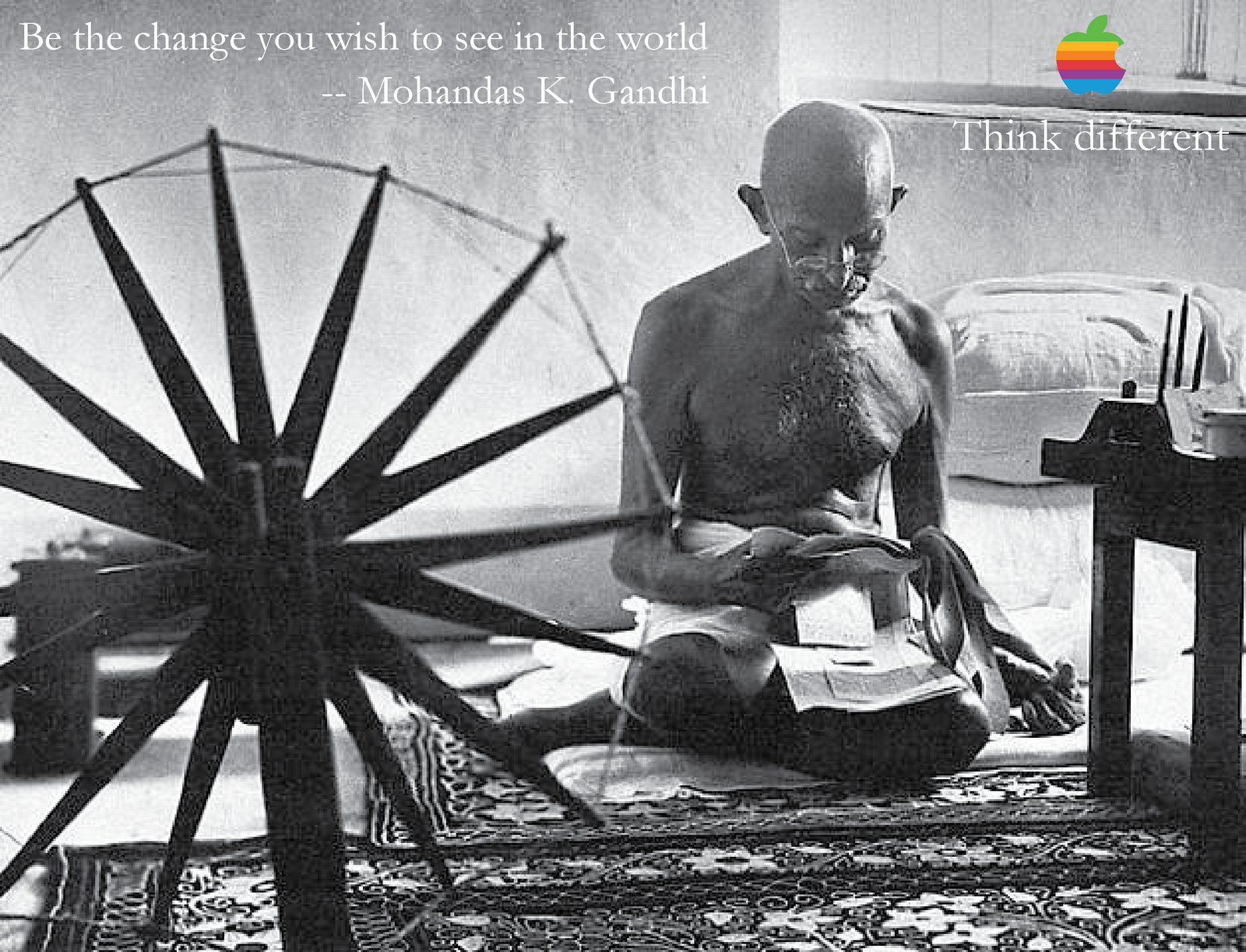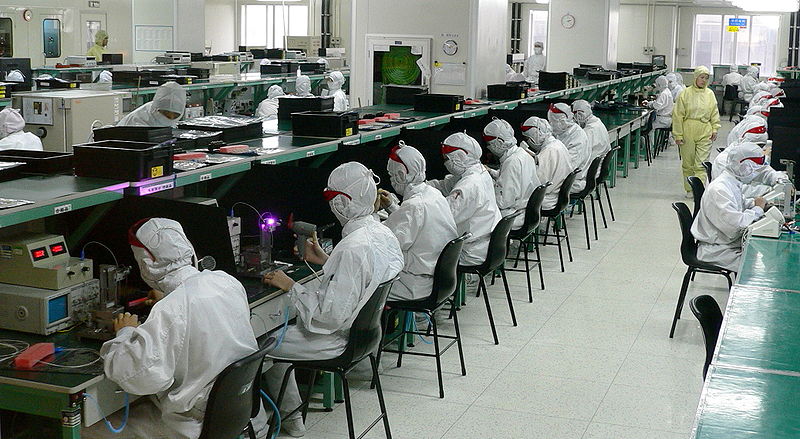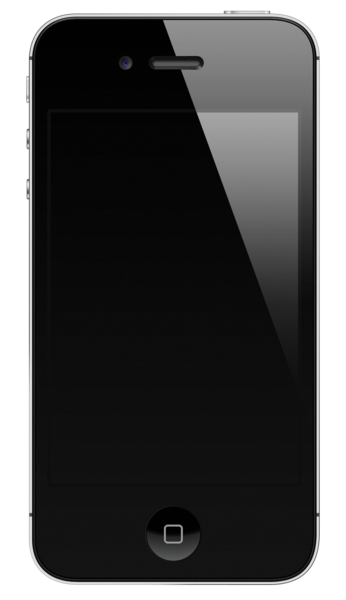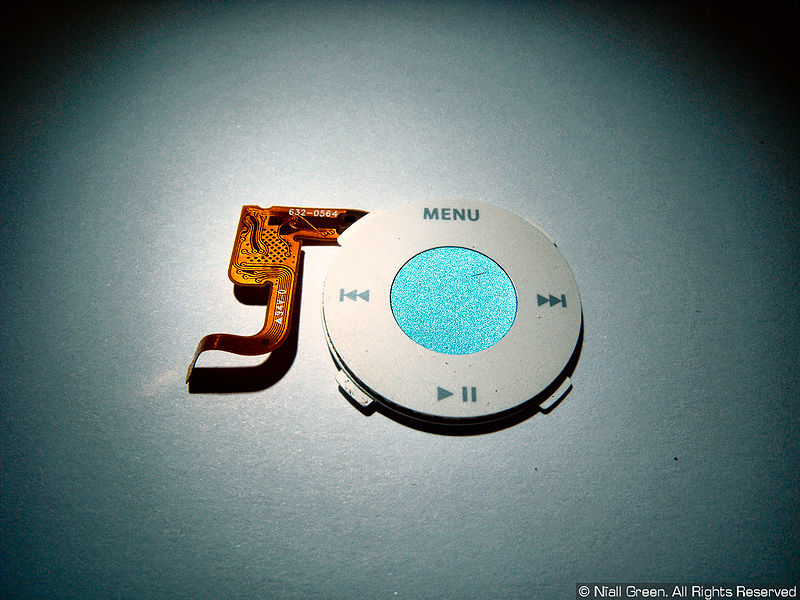
"Be the change you wish to see in the world."--Mohandas Gandhi. Think Different.
Sometimes I think about this: Some people have so little food that they starve to death. I don’t mean that metaphorically. They literally lack enough food to keep their organs functioning properly. They develop distended bellies and are no more able to smile than a skeleton. Then they die. Other people have so much food that they read magazines about food. Food is readily available and they have to stop eating at some point, so they fetishize food so that they can keep “eating” even when they’re not. This might sound simplistic and sophomoric and maybe it is, but here’s the thing: Those people really are dying, painfully.
Mike Daisey has applied this thinking to consumer electronics. Some people are so poor that they literally die working in brutal conditions on assembly lines. Most don’t die, but you wouldn’t want their lives in a million years. Things are so bad that the Foxconn factory complex in China has had to place suicide nets outside its windows. Other people have so much accessibility to cheap electronics that the read magazines about consumer electronics on their consumer electronics. They have so much “food” that they fetishize it. And since we tend to calculate purchase price in dollars rather than human cost, no one puts a face on the misery. That’s the crux of Daisey’s monologue, The Agony and Ecstasy of Steve Jobs.
I’ve already put up a couple of posts about Mike Daisey’s one-man show (here and here), but a follow-up feels necessary. The last post included a good bit from his work which was broadcast on This American Life. The radio show provided a post-performance rebuttal of sorts, which had very humane and progressive thinkers like Paul Krugman and Nick Kristof arguing that the horrid conditions of China’s Foxconn factory were better for the people there than no sweatshops at all. And they’re right: Always choose bad over worse.
But what if that isn’t the only choice? Foxconn has reached such a critical mass of production that Apple (and every other tech company) won’t move production elsewhere if a fairer treatment of workers resulted in slightly higher costs. Payroll is such a small piece of the final price of electronics anyhow. Almost all of it comes from R&D and profit taking.
Daisey isn’t going to back off, nor should we. If we absolutely demand that the workers at Foxconn are treated better, if we use our purchasing power to ensure this, it will happen. Maybe the products will be slightly more expensive and we’ll only have enough money to enjoy them and not enough to fetishize them, but isn’t that enough?
Isn’t that a more meaningful use of the “Think Different” phrase? Isn’t that a more righteous use of Gandhi’s image than some commercial selling cheap computers at a high human cost?




